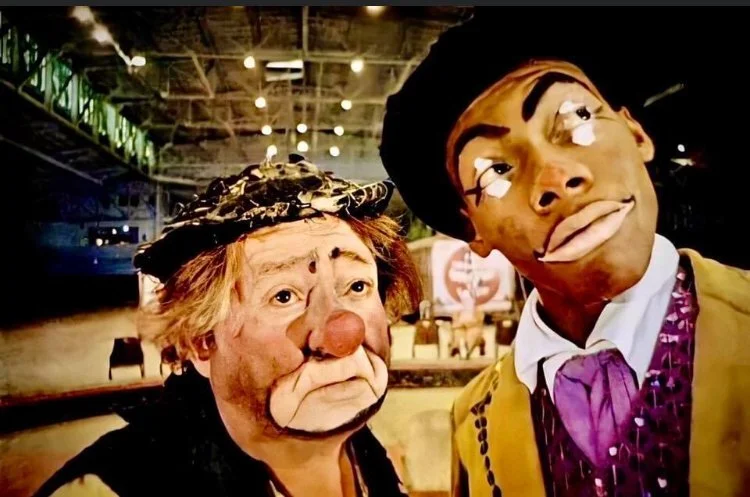A Statement from the ICHOF
As clowns, we provide entertainment and connection to a diverse audience. We do not ask ourselves who is watching us, we connect with all who wish to watch. The beauty of the art of Clown is the universal appeal- anyone of any nationality, race, religion, gender identity, ability, or social status can find a place to perform or be entertained. As we look at the events happening in today's climate and we look back at the historical inequities of our world, we must ask ourselves what we as a community and art form can do to make clowning more inclusive and remain inclusive for our fellow performers and audience members who represent various marginalized communities. One of the best things we can do both in or out of makeup is listen to people from these groups.
Listen without being dismissive or defensive. Absorb what you hear and learn about others, and learn about oneself by reflecting and owning moments where there may be stains of injustice or bias in your past. Clowns are representative of the people as a collective- we put ourselves in situations as we perform to gain empathy from our audience. The connections we make allow our audience to experience situations in a new way. Audiences laugh with us, get frustrated with us, and sometimes cry with us. Through actively listening, learning, and speaking out against injustice we as clowns can build these connections.
As historians, we of the International Clown Hall of Fame frequently browse the pages of history. When we happen upon a stain on those pages we must do what we can to ensure that stain doesn't grow or appear again in the future.
Among the pages is the story of Gordon Bunch. Gordon was famous for performing at the 1906 World's fair, and he was also hired by department stores as a 'living mannequin' for displays. In 1910 he was a clown and pantomime on the American vaudeville circuit. He was performing in a small town when a fire broke out at the theater. He rushed in and carried a woman to safety. When she came to and wished to thank her hero, she discovered him nearby wiping the sweat and makeup off his brow, revealing his brown skin. Instead of thanking him, she cried out a racial slur and fainted. Gordon spent the night in jail for making a white woman faint. This story isn't the first in the books, and it certainly wasn't the last.
We at the ICHOF stand with our fellow performers and audience members of the Black, Indigenous, and LGBTQ+ communities, people with disabilities, and other communities who have experienced injustice for far too long. The ICHOF will be listening, absorbing, reflecting, and shaping our future actions. We can and will do better, and we call upon everyone reading this message to do the same.
We can each encourage awareness and positive change by displaying it ourselves.
The Board of Directors of the International Clown Hall of Fame and Research Center.

